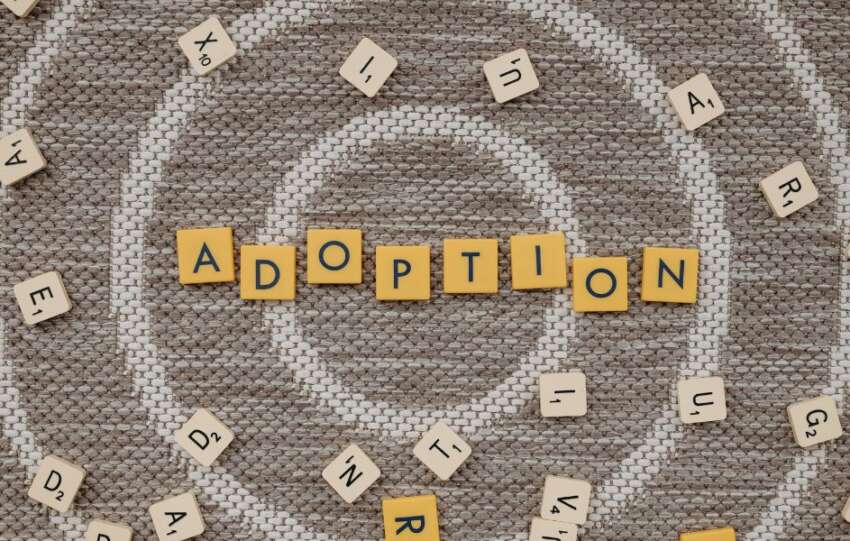Gender-neutral baby names are becoming more popular as parents look for options that allow their children to define their own identities. These names, often inspired by nature, places, surnames, or historical roots, provide flexibility and reflect modern values. Here’s a quick overview of some popular gender-neutral names and their origins:
- Avery: Rooted in Anglo-Saxon history, meaning "ruler of the elves." Popular for both genders but now more common for girls.
- Jordan: Inspired by the Jordan River, with religious and historical significance. Consistently popular for boys and girls.
- Riley: Derived from Irish roots, meaning "valiant" or "from the rye meadow." Widely used across genders.
- Kai: A multicultural name with meanings like "sea" (Hawaiian) and "keeper of the keys" (Scandinavian).
- Noah: A biblically significant name that has become a global favorite, now used for boys and girls.
- Indigo: Associated with the color and plant, symbolizing creativity and depth.
- Phoenix: A mythological name symbolizing rebirth and resilience.
- Arbor: Inspired by nature, meaning "tree" or "wood."
- Zephyr: From Greek mythology, meaning "west wind."
- Sage: A nature-inspired name meaning "wise one" or "prophet."
Why Choose Gender-Neutral Names?
- Professional Opportunities: May reduce gender bias in hiring.
- Personal Freedom: Allows children to shape their identity.
- Modern Appeal: Aligns with progressive parenting styles.
These names blend tradition and modernity, offering meaningful choices for parents who value individuality and inclusivity.
50 Popular and Unique Gender Neutral Names for Babies
1. Avery
Avery showcases how naming trends evolve over time. With roots in Anglo-Saxon history (400–1000 A.D.), the name originates from ælfræd (elf) and rihhi (ruler), translating to "ruler of the elves" or "wise." Its connection to nature and wisdom has made it an attractive choice for modern parents. This deep-rooted history highlights its journey through American naming trends.
Originally a boy’s name in 1880, Avery has undergone a major shift. By 1999, 52% of babies named Avery were girls, and by 2018, that number soared to 97% [4].
"The name has a whimsical feel, drawing in elements of nature and mysticism. But because Avery has been around so long, it also feels deeply rooted, solid, and respectable." – Kelly Burch [4]
Recent statistics further highlight this gender shift:
| Gender | Rank | Number of Babies | Percentage |
|---|---|---|---|
| Girls | 29 | 5,859 | 0.335% |
| Boys | 241 | 1,456 | 0.080% |
Avery’s history includes notable figures like William Avery Rockefeller, an influential businessman, and Christopher Avery, a 17th-century English pirate [5]. Its blend of historical depth and gender versatility makes Avery a name that balances tradition with modern appeal.
2. Jordan
Jordan is a timeless name that works well for any gender, carrying historical and religious significance. It originates from the Jordan River, located between Jordan and Israel, and comes from the Hebrew word Yarḏen, meaning "descend" or "flow down" [6]. This river holds spiritual importance as the place where John the Baptist baptized Jesus Christ in the New Testament [6]. Its rich history has helped Jordan remain a popular gender-neutral choice over the years.
The name gained traction during the Crusades when crusaders brought back water from the Jordan River, leading to its use as a personal name. It experienced a revival in the 19th century and has seen fluctuating popularity over the last few decades. For boys, Jordan peaked in 1998, while for girls, its highest point was in 2004 [7].
| Year | Boy Rank | # Boys | Girl Rank | # Girls |
|---|---|---|---|---|
| 2023 | 98 | 3,632 | 499 | 613 |
| 2003 | 38 | 10,266 | 48 | 5,620 |
| 1993 | 28 | 14,749 | 57 | 5,823 |
| 1983 | 71 | 4,003 | 431 | 497 |
Parents today often choose Jordan for its flexibility, with variations like Jordin, Jordon, and Jordyn providing fresh takes on the name [6]. It continues to balance its spiritual roots with a modern, adaptable style, making it a meaningful and inclusive choice for many families.
3. Riley
Riley has origins in English, Celtic-Gaelic, and Irish traditions. It comes from the Irish surname O’Reilly, which traces back to Raghallach. The name carries three meanings: "a little stream" (English), "valiant" (Celtic-Gaelic), and "from the rye meadow" (Irish) [8].
In the U.S., Riley has seen shifts in popularity over the years. It reached its highest rank for girls at number 22 in 2016 and for boys at number 99 in 2002. By 2020, it was ranked 33rd for girls and 258th for boys [9]. Globally, it was among the top names for boys in 2014, ranking 25th in Scotland, 35th in the UK, and 41st in Australia.
Parents often put their own spin on the name with spellings like Rylie, Rylee, Ryleigh, and Ryley. Nicknames such as Ry, Ry-ry, Lee, and Ley are also common [8]. With its rich history and adaptable style, Riley remains a popular choice across genders.
4. Kai
Kai is a name with roots in various cultures and is becoming a popular gender-neutral option. While it has traditionally been used more than 90% of the time for boys in the United States, its appeal across genders is growing. Currently, Kai ranks #61 in U.S. births [10] and has risen to #10 on contemporary Baby Names Popularity Charts [11].
The name carries different meanings depending on the culture:
| Culture | Meaning |
|---|---|
| Hawaiian | Sea, ocean |
| Japanese | Ocean, shell, restoration, recovery |
| Scottish | Fire |
| Scandinavian | Keeper of the keys, pure |
| Welsh/German | Rejoicer, fort, joyful |
| Navajo | Willow tree |
| Frisian | Warrior, brave spear |
Kai’s short length and straightforward pronunciation add to its charm. Alternative spellings like Ky or Khai [11] provide flexibility, and its use as both a standalone name and a diminutive in languages like German, Swedish, Norwegian, Danish, Finnish, Dutch, and Estonian makes it a great option for families with international ties.
5. Noah
Noah, once primarily known from the Bible, has become one of the most popular gender-neutral names in the United States and around the world.
The name holds significance across different languages:
| Origin | Meaning |
|---|---|
| Babylonian | From "nukhu", meaning rest or repose |
| Hebrew | Derived from "nahum", meaning comfort |
Noah’s popularity has been steady over the years. Since 2013, it has consistently ranked among the top two names for babies born in the U.S., holding the number one spot from 2013 to 2016 [12]. As of 2023, it remains in second place [13]. This consistent performance in the U.S. reflects its global appeal.
"Noah is nearly a patriarch of popular baby names at this point, going from Old Testament graybeard to Top 10 name in 2009, hitting Number 1 in 2013, and now settled into second place in the US for the past seven years." – Nameberry [13]
Noah’s international success is equally impressive. By 2024, it had climbed to the top of baby name charts in countries like Scotland, Germany, and the Netherlands [13].
For those interested in variations, Noah offers several international versions:
- Noë (French)
- Noé (Spanish)
- Nuh (Arabic)
Its soft sound and vowel ending make it a popular choice in today’s trend toward gender-neutral names.
6. Indigo
Indigo is a gender-neutral name that ranks #46 in popularity (#964 in U.S. births [14]), with a rich history and spiritual associations.
The name originates from ancient Greece, derived from the word Indikon, meaning "Indic, from India" [15]. Over time, it transitioned through Latin (indicum) and Spanish (indico) before becoming the English term we know today. Its ties to the Indigofera tinctoria plant, once prized for its vibrant dye known as "blue gold", add a layer of historical importance [15]. This background has made it increasingly appealing to modern parents.
| Origin | Meaning | Symbolism |
|---|---|---|
| Greek | Blue Dye | Mystery and depth |
| Latin | From India | Spiritual awareness |
| English | Purplish-blue | Intuition and creativity |
"The name you give a child at birth is like their numerological DNA – it is a blueprint of who they are, their talents and character traits, their likes and dislikes, and much more. So choose carefully and, if possible, consider an ancestral name, especially one that belonged to an ancestor who did well and lived a good life. But consult a numerologist for more insight and perhaps a little fine-tuning by changing a letter or adding a middle name." [15]
Indigo is associated with the third eye chakra, symbolizing insight and wisdom. Its connection to creativity and depth resonates with parents seeking meaningful, nature-inspired, and non-binary names [16]. A recent example is Indigo Wren Chatmon, born in 2021, reflecting the rising trend of choosing names that blend natural and spiritual elements.
sbb-itb-a1a8504
7. Phoenix
Phoenix is a gender-neutral name that has been part of U.S. naming trends since 1995 [17]. Its connection to mythology makes it appealing to parents who want a name symbolizing renewal and transformation.
The name comes from the Greek word phoinix, meaning "dark red" [18]. In mythology, Phoenix represents the legendary bird associated with rebirth and immortality, making it a powerful symbol of change and resilience [17].
| Origin | Greek |
|---|---|
| Meaning | Purple-Red/Dark Red |
| First U.S. Usage | 1995 (boys), 2003 (girls) |
| Name Variations | Fenix, Phoenicks, Phenix |
Phoenix has steadily gained traction, with 1,519 babies per million given the name in 2020 [19]. It first appeared in the top 1,000 names for girls in 2003 and is now equally popular for boys and girls [17].
Famous individuals with this name include Phoenix Barron Hilton Reum (born 2023) and Phoenix Monroe Morrison (born 2021) [17]. Its Greek roots and striking meaning of "purple-red" continue to resonate with parents.
Thanks to its mythological background and association with rebirth, Phoenix remains a meaningful and versatile choice for modern families [19].
8. Arbor
Arbor comes from the Old English term for "tree" or "wood", offering a nature-inspired choice for parents seeking something different. This name reflects ideas of growth, strength, and a connection to the natural world, making it a gender-neutral option that stands out.
| Origin | Old English |
|---|---|
| Meaning | Tree or Wood |
| First U.S. Usage | 1915 |
| Peak Popularity Year | 1897 |
Over the last century, Arbor has been given to 315 females and 83 males in the United States, with 79.15% of its usage being for girls and 20.85% for boys [21]. These statistics highlight its gradual rise as a gender-neutral name.
Arbor carries a strong connection to nature, resonating with eco-conscious parents. Its ties to forests and woodlands evoke resilience and endurance. Additionally, its association with Arbor Day – a holiday dedicated to tree planting and conservation – adds an extra layer of environmental meaning.
Currently ranked #2,156 on Nameberry, Arbor has caught the attention of 7% of the platform’s users [20]. This name offers a refreshing alternative to traditional gendered names while staying rooted in cultural and environmental significance.
9. Zephyr
Zephyr is a gender-neutral name rooted in Greek mythology, symbolizing a gentle breeze. It originates from "Zephyros", the Greek god of the west wind[23], giving the name a rich mythological background. This connection has helped the name maintain its appeal in modern times.
| Origin | Greek |
|---|---|
| Meaning | West Wind |
| Current Popularity Rank | #55 on Baby Names Charts |
| Gender Distribution | 18.3% Female / 81.7% Male |
Recent statistics reveal that 42 girls and 188 boys were named Zephyr[24]. While historically more common for boys, it’s becoming a popular gender-neutral option, especially for parents drawn to its natural and mythological ties.
Notable figures with this name include Zephyr Teachout, an American law professor and political commentator, and Zephyr Wright, who served as cook to President Lyndon B. Johnson and First Lady Lady Bird Johnson from 1942 to 1969[24]. These examples highlight the name’s lasting charm.
Though not a chart-topper in U.S. birth rankings[22], its distinctive sound and deep cultural roots make it a compelling choice for those seeking unique and inclusive names.
10. Sage
Sage is a name that combines the essence of nature with the idea of wisdom. It first appeared in the U.S. Top 1000 for both boys and girls in the early 1990s [25]. This name has a rich history and a modern charm that makes it stand out.
| Origin | Latin/English/French |
|---|---|
| Meaning | Wise One/Prophet |
| Current US Rank (Girls) | #223 |
| Current US Rank (Boys) | #442 |
| Overall Popularity | #422 in US births |
The name Sage has deep roots. Ancient Greeks and Romans burned sage leaves, believing it brought wisdom, while Arab physicians in the 10th century thought it could extend life [27].
"Sage is an evocatively fragrant herbal name that also connotes wisdom, giving it a double advantage." – Nameberry [27]
Its rise in popularity mirrors the 1970s trend of nature-inspired names like Meadow and Willow [26]. Sage stands out for several reasons:
- It represents both a fragrant herb and a wise figure.
- It is linked to ideas of wisdom and calm.
- Its gender-neutral status has been recognized since the 1990s.
- The name is simple yet memorable.
Alternative spellings include Saige and Saje [25], but the original spelling remains the favorite. Its current #2 spot on Baby Names Popularity Charts [26] highlights its enduring appeal.
How to Pick a Gender-Neutral Name
When gender-neutral names started becoming more popular, many parents – especially those with daughters – saw them as a way to reduce bias and create more equal opportunities [1].
Here’s how you can navigate the process:
-
Look Into Name Origins
Surnames often make great gender-neutral first names. They tend to feel modern and versatile. -
Draw Inspiration From Nature and Places
Nature-related names are a treasure trove for gender-neutral options. Here are some ideas:Category Examples Description Natural Elements Phoenix, River, Storm Bold and memorable Flora & Fauna Sage, Robin, Bear Grounded and earthy Celestial Bodies Nova, Sky, Moon Dreamy and otherworldly -
Use Online Tools
Take advantage of websites and AI tools that specialize in name searches. These platforms often let you browse thousands of names, get suggestions, and even involve your family by voting on favorites. -
Try It Out
Say the name out loud with your last name to see how it flows. Keep an eye on details like initials (to avoid awkward combinations) and think about how the name might work in different contexts – personal and professional.
Choosing a name that reflects both modern and timeless qualities is key. Gender-neutral names give parents the freedom to pick something that aligns with their values while ensuring it fits their child’s future.
"You can name your child anything you want, regardless of their sex" [28]
This flexibility in naming reflects today’s parenting mindset. Strive for a name that feels distinctive but practical, so it supports your child in every stage of life.
Why Choose Gender-Neutral Names
The growing popularity of gender-neutral names reflects changing values among American parents. Many now prefer names that offer children greater flexibility and freedom in shaping their identities.
Baby-naming expert Sherri Suzanne highlights this trend:
"When gender-neutral names first started appearing, many parents – especially parents of girls – saw benefits in a name whose gender could not be identified. They felt such a name would ‘level the playing field’ when it came to opportunities for their child." [1]
This approach can help reduce unconscious bias in professional environments. Linda Murray explains why millennial parents, in particular, are drawn to this naming style:
"Millennials are an open-minded and accepting group, and they don’t want their children to feel pressured to conform to stereotypes that might be restrictive." [3]
Names like Avery, Jordan, and Riley illustrate how gender-neutral choices can provide broader opportunities. Some key advantages include:
| Advantage | Explanation |
|---|---|
| Professional Opportunities | Helps avoid gender bias in hiring and career progression |
| Personal Freedom | Allows children to define their identity as they grow |
| Modern Appeal | Aligns with progressive values and parenting styles |
This trend reflects a cultural shift toward breaking away from traditional gender norms. As Pamela Satran notes, it signals a move toward names that embrace individuality and adaptability [3].
Conclusion
Gender-neutral names are becoming a popular choice among modern American parents. Between 1985 and 2015, there was an 88% rise in the use of unisex names, highlighting changing values and preferences in parenting [2].
Here are some key reasons why parents are opting for gender-neutral names:
| Benefit | Why It Matters |
|---|---|
| Professional Edge | May help reduce gender bias in career opportunities. |
| Personal Freedom | Gives children the freedom to define their own identity. |
| Cultural Fit | Aligns with today’s inclusive parenting practices. |
| Timeless Appeal | Suitable for all stages of life. |
These names reflect a shift toward inclusivity and a desire to create environments where kids can grow without being boxed in by traditional gender norms. As Mommyhood101 puts it:
"Picking a gender-neutral name is becoming very popular, and there are tons of reasons why parents are turning to unisex names when picking the perfect moniker for their baby-to-be." [29]
Ultimately, the name you choose should resonate with your family’s values and support your child’s journey. The growing trend of gender-neutral names mirrors a broader acceptance of diverse identities and inclusive values [2].





